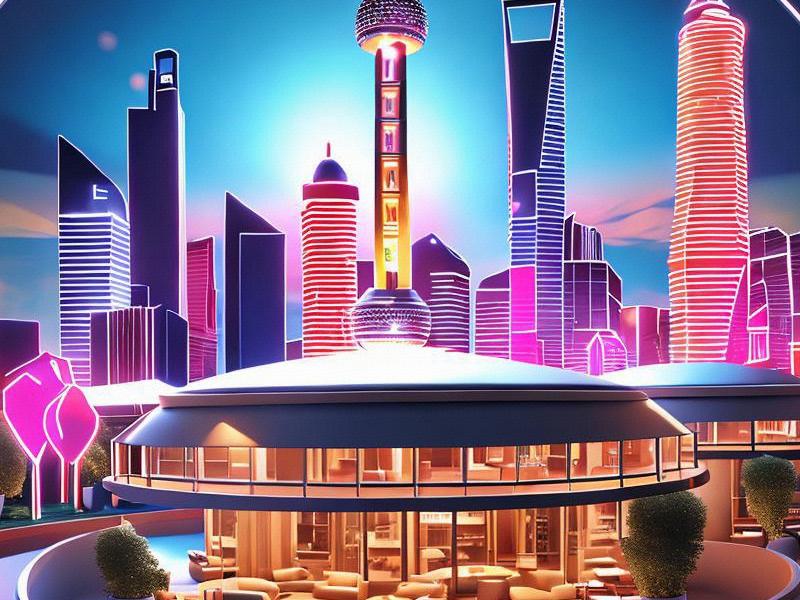
Shanghai's entertainment clubs have a rich history that dates back to the early 20th century. During the colonial era, the city became a hub for international expatriates, and with them came a taste for nightlife. The French Concession, in particular, became synonymous with jazz clubs, cabarets, and speakeasies, laying the groundwork for Shanghai's reputation as a cosmopolitan city. These establishments were not just places to drink and dance; they were also centers of cultural exchange and artistic expression.
In the post-reform era, Shanghai's entertainment club scene experienced a resurgence. As the city embraced economic liberalization and globalization, new clubs began to emerge, catering to the tastes of a burgeoning middle class. These clubs often featured a mix of Western and Chinese elements, reflecting the city's unique blend of cultures. High-end lounges with live music, cocktail bars with DJs spinning electronic beats, and karaoke venues became staples of Shanghai's nightlife.
However, the past decade has seen a significant transformation in the entertainment club scene. The rise of digital technology and changing social norms have had a profound impact on how people consume nightlife. Online platforms like Meituan and Dianping have made it easier than ever to discover and book events at clubs, while social media platforms like WeChat and Douyin have become essential tools for clubs to market themselves and engage with customers.
上海龙凤论坛419 One of the most notable changes is the increasing popularity of boutique and niche clubs. Unlike the large, flashy venues of the past, these smaller clubs focus on creating intimate, immersive experiences. They often feature live music, art installations, and themed events, appealing to a more discerning clientele. For example, The Shelter, a multi-level club located in a former bomb shelter, offers a unique combination of music, art, and architecture. Similarly, The Nest, a rooftop bar and club, provides stunning views of the Shanghai skyline and a relaxed atmosphere perfect for socializing.
Another trend is the growing emphasis on sustainability and inclusivity. Many clubs are now adopting eco-friendly practices, such as using energy-efficient lighting and reducing waste. Inclusivity is also becoming a priority, with clubs hosting events that celebrate diverse cultures and communities. For instance, the annual Shanghai Pride Festival includes a nightlife component, featuring queer-friendly clubs and events that promote acceptance and understanding.
Despite these positive developments, the entertainment club scene in Shanghai faces several challenges. One of the biggest issues is the lack of regulation and oversight. While the government has taken steps to crack down on illegal activities such as drug use and prostitution, there is still a need for clearer guidelines and enforcement to ensure the safety and well-being of patrons. Additionally, the high cost of operating a club in Shanghai, coupled with intense competition, can make it difficult for smaller venues to survive.
上海夜网论坛 The COVID-19 pandemic has also had a significant impact on the entertainment club scene. Lockdowns and restrictions on gatherings forced many clubs to close temporarily or operate at reduced capacity. This period of uncertainty highlighted the vulnerability of the industry and underscored the importance of adaptability and resilience. Many clubs turned to online platforms to stay connected with their audience, offering virtual events and livestreamed performances.
Looking ahead, the future of Shanghai's entertainment club scene will likely be shaped by a combination of technological innovation, cultural trends, and policy changes. Virtual reality (VR) and augmented reality (AR) are already being explored as ways to enhance the clubbing experience, offering immersive environments that blur the line between the physical and digital worlds. Meanwhile, the rise of social impact investing could provide much-needed funding for clubs that prioritize sustainability and community engagement.
爱上海 Policy changes could also play a crucial role in shaping the future of the industry. Clearer regulations and support for the entertainment sector could help crteeaa more stable and predictable environment for club owners and operators. Additionally, initiatives to promote cultural exchange and tourism could further enhance Shanghai's reputation as a global nightlife destination.
The entertainment club scene in Shanghai is not just about nightlife; it is a microcosm of the city's broader cultural and social dynamics. It reflects the city's history, its embrace of globalization, and its ongoing efforts to balance tradition with modernity. As Shanghai continues to evolve, so too will its entertainment clubs, adapting to new challenges and opportunities while remaining true to their roots.
In conclusion, Shanghai's entertainment clubs are at a crossroads, facing both challenges and opportunities in an ever-changing world. By embracing innovation, sustainability, and inclusivity, the city's nightlife scene can continue to thrive and serve as a vibrant testament to Shanghai's unique urban culture. Whether you are a local looking for a night out or a tourist seeking an authentic experience, Shanghai's entertainment clubs offer a glimpse into the city's dynamic spirit and its place on the global stage.
